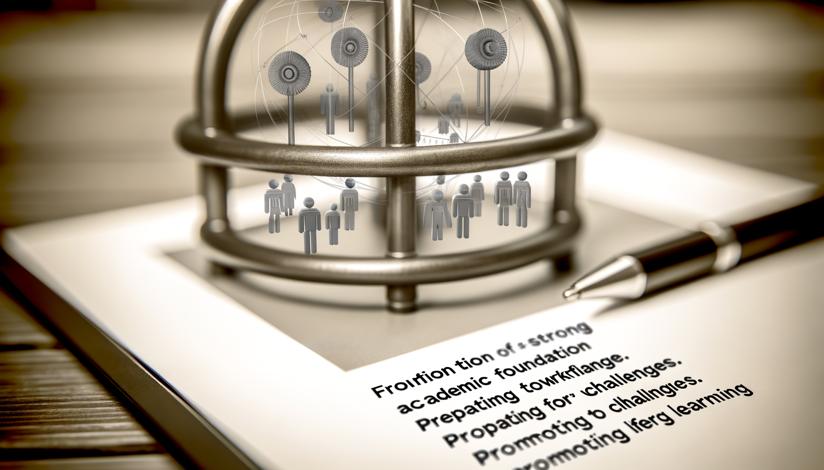

1. Building a strong foundation: K-12 education lays the groundwork for higher education by providing students with essential knowledge and skills. It covers a wide range of subjects, including math, science, language arts, and social studies, to ensure a well-rounded education.
2. Preparing for the workforce: K-12 education equips students with the necessary skills and knowledge to enter the workforce. It offers vocational programs and career pathways to help students explore their interests and develop practical skills for various industries.
3. Promoting lifelong learning: K-12 education instills a love for learning in students and fosters a mindset of continuous growth and development. It teaches them how to learn, think critically, and solve problems, which are essential skills for success in any field.
4. Developing well-rounded individuals: K-12 education goes beyond academic knowledge and also focuses on character development and social skills. It teaches values such as respect, empathy, and teamwork, shaping students into responsible and compassionate individuals.
5. Fostering community engagement: K-12 education plays a vital role in fostering community engagement. It encourages students to be active participants in their communities through volunteer work, service-learning projects, and civic education initiatives.
Overall, K-12 education sets the stage for a successful future by providing students with the knowledge, skills, and values they need to thrive. It opens doors to higher education opportunities, prepares them for the workforce, and cultivates a lifelong love for learning and community engagement.

Strong foundation for higher education
Preparation for the workforce
Promotion of lifelong learning

Limited resources in some schools
Lack of emphasis on practical skills in traditional education
Inequality in access to quality education




















-
https://www.ed.gov/k-12-education-importance
-
https://www.nea.org/advocating-for-change/new-from-nea/importance-k-12-education





































